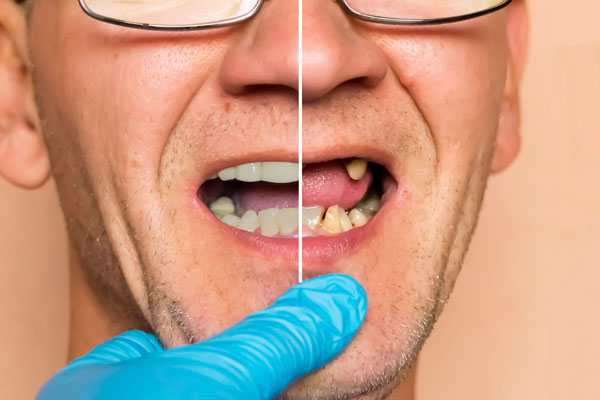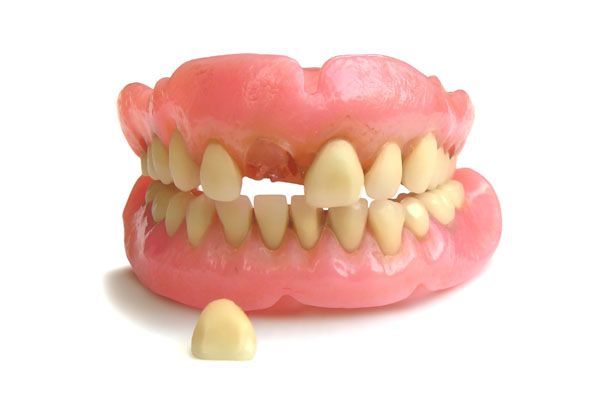Do I Need a Tooth Extraction?

There are a number of reasons why you might need a tooth extraction. The most common reason is that the tooth is too decayed to repair. However, there are other reasons why a tooth extraction might be necessary, including infection and a crowded mouth before orthodontic treatment. Read on to find out if you might need a tooth extracted.
Infection
Sometimes, damage or decay to the teeth goes down to the pulp of the tooth. The pulp is the living part of the tooth and it provides a measure of protection to the tooth. It contains nerves and blood vessels for the tooth. When the tooth becomes damaged or decayed, bacteria can enter the pulp and it can become infected. Many times, a root canal or antibiotics can make the infection go away. However, the tooth may need to be extracted if the infection is too advanced to cure.
Gum disease
Gum disease, also known as periodontal disease, can cause the teeth to become loose. This happens when bacteria and plaque have formed between the teeth and under the gumline. In the early stages of gum disease, the gums may bleed while brushing or flossing. However, if the disease is not treated, it can spread. It will move to the areas underneath the gumline and gradually undermine the teeth. Eventually, the teeth will become loose. When the teeth become loose, they may need to be extracted.
Crowded teeth
Sometimes, before orthodontic treatment, a patient may need some teeth extracted. If the teeth are severely crooked and the mouth is crowded, there may not be enough room for the teeth if they are straightened. The teeth may also be too large for the mouth.
Wisdom teeth
Sometimes, wisdom teeth are impacted. This means that the teeth cannot break through the gum by themselves. This may happen if the mouth is too small for the teeth or if the teeth are at an angle. If the wisdom teeth are at an angle, they can push against the other teeth in the mouth and eventually push the other teeth out of alignment.
Even if the wisdom teeth are not impacted, a dentist may still recommend that a patient have them removed. Even if the wisdom teeth are not currently causing problems, it is easier to remove teeth when the patient is younger because the bone is not as hard. If wisdom teeth are coming in at an angle, it can be difficult to clean around these teeth. Eventually, plaque and bacteria can cause the teeth to begin to decay. This can lead to pain in the area.
Visit a dentist today if you need a tooth extraction
There are many reasons why you might need a tooth extracted. These include gum disease, impacted teeth and a crowded mouth. Seeing a dentist regularly will allow the dentist to keep an eye on any teeth that may need to be extracted. The dentist can also help you prevent gum disease that may lead to a tooth extraction.
Request an appointment here: https://thechesterfielddentist.com or call Chesterfield Dentist at (804) 412-0867 for an appointment in our Chester office.
Check out what others are saying about our services on Yelp: Read our Yelp reviews.
Recent Posts
A dentist’s job is to make sure your teeth stay in great health. For many patients, this means considering the benefits of dental restorations. Dentists recommend restorative procedures when a patient has a damaged, diseased, or missing tooth. These standard treatments stop the problem in its tracks, prevent additional injury and infection, and even provide…
The purpose of dental restorations is to replace permanent teeth that are lost. This can happen because of trauma to the tooth that renders it irreparable or decay that is so extensive that it requires extraction. There are several restoration options for replacing a missing tooth. Some are removable while others are permanently fixed in…
A healthy smile depends on more than daily brushing and flossing. If you are experiencing gum disease or severe plaque buildup, a deep teeth cleaning can restore your oral health. Unlike a standard dental cleaning, this treatment targets bacteria below the gumline and reduces the risk of serious oral health issues.Deep teeth cleaning, also known…
Multiple damaged or missing teeth can impair function and degrade the appearance of your smile. However, dental restorations can restore both the look and function of your teeth.There are many different types of dental restorations, and most of them can be used to address issues with multiple teeth. The type of restoration used for your…


